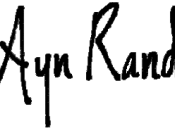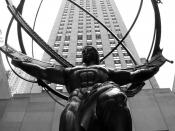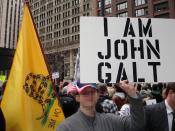In reacting to the Enron scandal, many cultural commentators have been quick to recur to a favorite theme: the corrupting power of commerce.
Here is a typical example, from the "Letters Column" of the New York Times: "Enron's collapse was a product of the culture of greed, dishonesty, ethical blindness and wishful thinking that has characterized much of corporate America since the advent of the Reagan administration" (John S. Koppel, January 22, 2002). In this view, Enron is simply the representative of corrupt, "free market" capitalism. And the author's reaction, like the reactions of many editorialists and commentators, is disgust with "greed" and contempt for the idea that money-making might be moral. The Los Angeles Times's editorial cartoonist, Jeff Danziger, captured the feeling perfectly by depicting Enron as a house of prostitution, whose parlor is decorated with statues and pictures of naked and scantily clad women holding bags marked with the dollar sign.
The message was clear: Dollars are money; money symbolizes capitalism; capitalism is immoral.
Danziger is right that money symbolizes capitalism, but what should we think of this symbol? Ayn Rand's answer was unequivocal: "Money demands of you the highest virtues," she wrote in Atlas Shrugged. Yet her view seems incongruous in light of the moral shortcomings of certain businessmen, wealthy heirs, and corporations, of which Enron is a particularly noisome instance. Under the circumstances, it may be useful to re-examine Objectivism's view that money is a badge of nobility, a view of money that underlies the economic commentaries in this magazine.
In Atlas Shrugged, one of the heroes, Francisco d'Anconia, gives a speech on the meaning of money. In it he says: "The words 'to make money' hold the essence of human morality." His reason is that one makes money through production and trade. And that is...



Excellent essay
helped me so much thanks
0 out of 0 people found this comment useful.